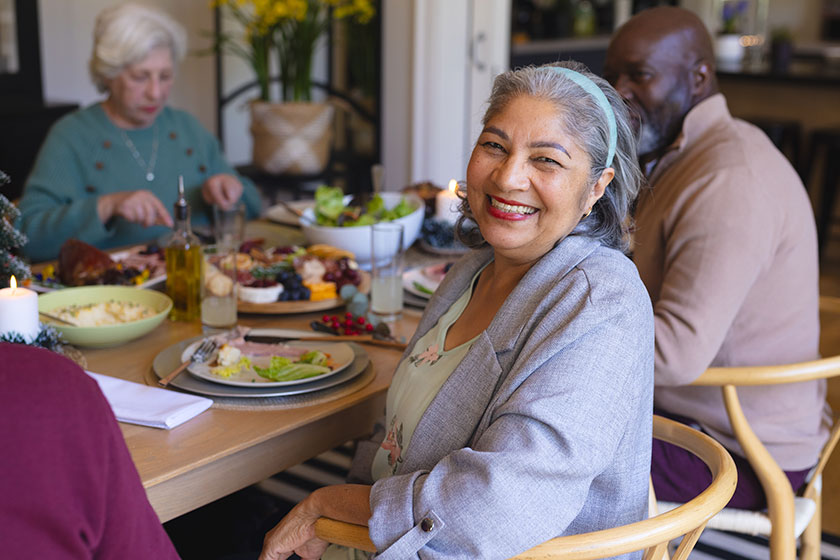A residents’ council is an organized group of individuals within long-term care communities, such as retirement homes, who come together to represent the voice of the residents. This council offers a platform for the elderly to discuss common concerns, organize social events, and collaborate with the administration to improve the overall living experience. These councils are common in nursing homes, assisted living communities, and other similar settings.
Purpose of the Council
The primary purpose of the council is to give the elderly a structured way to express their needs, desires, and concerns. By creating an open forum, it allows your loved ones to share ideas, make suggestions, and see to it that they feel heard by the community’s management. This is particularly important for those who might feel disconnected or isolated, providing a sense of community.
Additionally, it serves as a tool for advocacy within the community. Family members and friends can rest assured that there is a consistent way for concerns to be addressed. Whether it involves changes in dining options, activity schedules, or community maintenance, the council acts as a unified voice on behalf of its members.
How Does it Function?
These councils typically hold regular meetings, which may be scheduled weekly or monthly, depending on the preferences of the participants. During these meetings, attendees discuss a range of topics from community events to community policies. The structure of the meetings varies, but they often follow a set agenda, which helps keep discussions focused and organized.
The group is usually led by elected officers, such as a president, vice-president, and secretary, though these roles are flexible depending on the needs of the residents. In most cases, the council invites team members or ombudsmen to attend, but they can request to hold private sessions to allow open and honest conversation among themselves.
Organizing Social Activities
Another major role of the council is to plan and organize activities that foster a sense of belonging and engagement within the community. These can include holiday celebrations, game nights, educational workshops, or group outings. By allowing the residents themselves to take ownership of the planning process, it promotes active participation and boosts morale among the group.
These social activities serve multiple purposes. They provide an outlet for fun and entertainment while also enhancing bonds between the elderly and their peers. A well-organized council helps transform a community into a lively, connected one.
The Role of Team Members and Administration
While a residents’ council operates independently, team involvement can play a supportive role. In many communities, team members are invited to attend meetings to hear feedback directly from the residents. This open dialogue benefits both parties, as management gains valuable insights into areas that may need improvement.
However, it is important for the team to respect the autonomy of the council. Meetings are often held privately so that residents can speak freely without concerns about repercussions. The role of the team should be one of assistance rather than control, facilitating improvements based on the council’s recommendations.
Advocating for Change
Through this council, older adults can advocate for changes that impact their quality of life. Whether it is requesting healthier meal options, suggesting changes in daily schedules, or addressing safety concerns, the council provides a structured way for these issues to be communicated. This can lead to meaningful improvements in daily life for all residents.
The presence of a council can also foster a culture of collaboration between the residents and the community’s management. Both parties benefit when issues are addressed promptly and respectfully. The advocacy function of the council reinforces the value of listening to the voices of those living within these communities.
Encouraging Resident Participation
For the’ council to be effective, participation from the community is key. Encouraging the elderly to join the council meetings, share their thoughts, and contribute ideas is important for the council’s success. Often, communities provide resources such as meeting spaces, materials, and team support to make participation easier and more accessible for everyone.
Some residents may feel hesitant to participate, but the council provides a non-threatening environment where everyone’s voice is valued. Over time, involvement in the council can increase residents’ sense of empowerment and belonging.
Empowering Your Loved Ones through a Residents’ Council
The council provides a powerful opportunity for the elderly to advocate for themselves and shape their community. By actively participating in this group, your family members can take part in decision-making processes that directly affect their daily lives. Whether it is organizing activities, addressing concerns, or building stronger relationships with peers, a council empowers residents to take charge of their experience.
Through regular meetings and open communication, the council fosters a welcoming environment where all voices matter, ultimately enhancing the sense of community for your loved ones.







